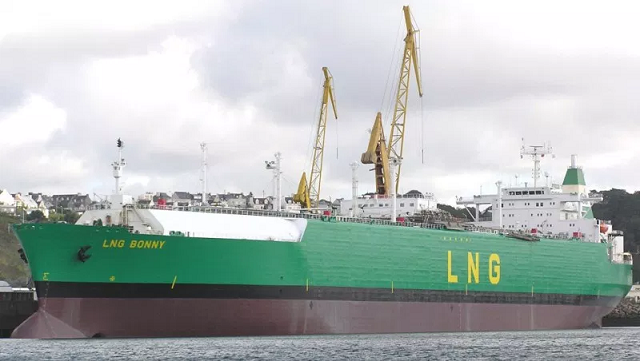As part of its strategic aspirations to derive maximum value from Nigeria’s abundant natural gas resources, the Federal Government is targeting 10 per cent of the world’s market share in traded Liquefied Natural Gas (LNG).
Group Managing Director of the Nigerian National Petroleum Corporation (NNPC), Dr. Maikanti Baru, disclosed this Tuesday while addressing the 27th World Gas Conference (WGC) in Washington DC, United States.
Speaking at a session on “The Role of Gas in Power Generation” under the theme “Fuelling the Future”, Baru reeled out the enormous potentials of Nigeria’s gas resources and their huge contributions to the nation’s economy, explaining also the gas-to-power initiatives as well as the quest for industrialization.
“We are focused on jumpstarting and sustaining gas supply to support a rapid growth in power generation, re-positioning Nigeria as the regional hub for gas-based industries such as fertilizer, petrochemicals, methanol, Liquefied Petroleum Gas (LPG), as well as leveraging our enormous reserves position to strengthen our footprints in high value gas export through LNG and regional gas pipelines,” Baru told delegates at the triennial gas gathering.
He said with emerging gas markets and the need to generate more power across Africa’s Sub-Saharan region, there abound an unprecedented investment opportunity in the gas sector for the country.
According to the GMD, Nigeria was focused on expanding its existing 22 million metric tonnes per annum (MTPA) Nigerian LNG plant with additional 8MTPA from its proposed Train 7, a development that will significantly increase global power generation capacity.
He further noted that towards achieving these gas aspirations, the Federal Government recently approved three-pronged reforms in the gas sector which included domestic gas supply obligation, gas pricing policy and regulation as well as gas infrastructure blueprint.
Dr. Baru stated that as at today, Nigeria had completed and commissioned about 600km of new gas pipelines, thereby connecting all existing power plants to permanent gas supply pipelines.
“We have also kicked off the 614km Ajaokuta-Kaduna-Kano (AKK) pipeline project which, on completion, will deliver gas along these areas, thereby generating additional 3600MW to the national grid,” he stated.
On the planned Nigeria-Morocco Gas Pipeline Project, Baru stated that the project would foster regional economic integration, reduce desertification, as well as enable accelerated regional electrification.
“It will contribute significantly to the overall economic development of the region through the emergence of a wide range of industrial clusters around petrochemical, manufacturing, agro-business and fertilizers among others,” he stated.
He observed that currently, government was completing the construction of the strategic Obiafo/Obirikon-Oben (OB 3) (East-West) interconnection pipeline and doubling the capacity of the existing Escravos to Lagos Pipeline (Western Pipeline System).
He said the Federal Government had intervened to drastically reduce gas flare from 25 per cent down to 10 per cent, even as it had stepped up efforts to stimulate gas utilisation and monetization.
Baru, who described gas as fast evolving preferred fuel for power generation, added that as an economic energy source, natural gas has, today, transformed the economies of several nations.
He said Nigeria’s gas resource base was significant, as its estimated 199TCF has the potential of up to 600TCF in undiscovered resources, a tremendous opportunity to compete favourably with its peers.
At the session, panelists also discussed the changing dynamics of global gas market, especially in the wake of the increased international demand and supplies, the huge potentials for gas-to-power initiatives as well as the impact of renewables on the gas sector.
The WGC is the most important global gas industry gathering of influential leaders, policy-makers, buyers, sellers and experts on gas.
Organised since 1931 by the International Gas Union (IGU), the triennial event aims to raise the profile of natural gas, while offering timely updates on strategic, commercial and technical issues facing the entire gas value-chain












